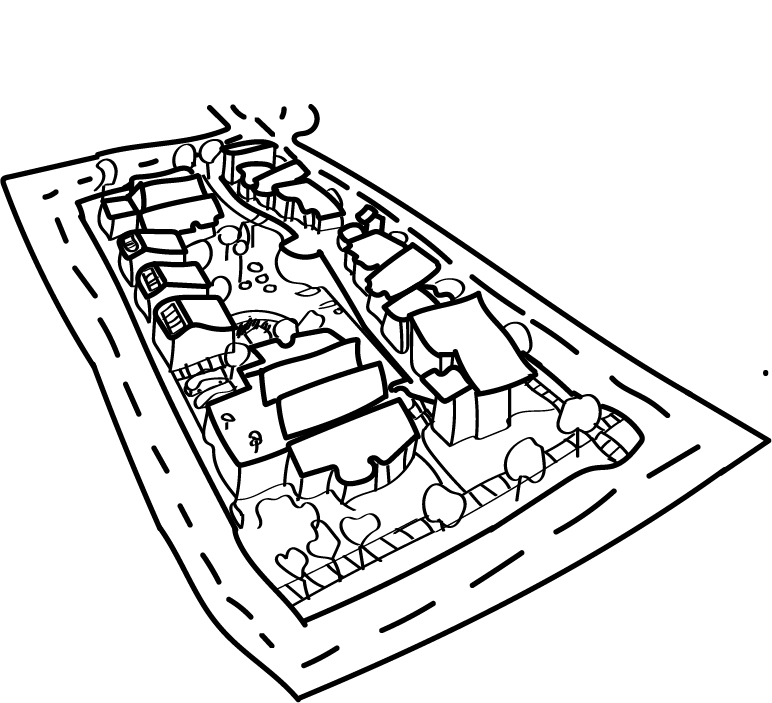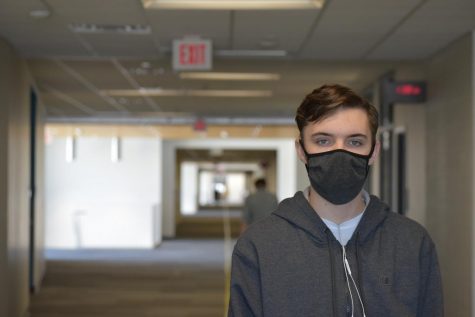Suburbs Perpetuate Mental Health
February 17, 2021
With mental health being a festering issue in society, it is time to take a closer look at one of the causes of this deep-seated sickness. Suburbs.
Ever since the end of the second world war, there has been an increased demand for cheap housing so that veterans could start a family away from the cacophony of noise seen primarily in a city. The solution to this was first developed in Levittown, New York, by William J Levit. His development was eventually what became the modern version of the suburb. Problems began to develop almost immediately after they were made across the country, such as a need to drive between houses and work, a feeling of loneliness due to not having any sort of physical contact with other people daily, older family members not having a purpose after retirement and a lack of talking in person with others. Although entertainment has gotten better as time went on (TV, radio, VR and playgrounds) almost all of these problems can still be found in the world today.
So what is the solution? Aaron Koopal (architect from ISU and 2015 JHS graduate) recommends Suburban Squares, a term he coined. They are buildings that provide entertainment and a place to hangout with people who live nearby. Another is what he described as co-housing. Co-housing could help solve most of the issues brought up, because it makes socializing and relaxing easier once home. Furthermore, it would be cheaper because all of the wants of life are taken care of.
Want to play games? Covered. Want to talk to a lot of people easily? Covered. Want to sit alone and read? Covered. Want food without having to drive? Covered. Need a purpose beyond working for money and nothing in particular? Covered.
Having lived in a suburb, basic things one wants to do involve driving somewhere else. Driving to Casey’s for a snack, going to find entertainment, playing sports and going to hangout with friends eventually means driving somewhere. That makes it very difficult when trying to have fun because it forces one to put out a lot of effort. When I do hangout with my neighbors most of the things we do are organized events that happen infrequently. We will rarely do anything over breaks together, over holidays and never every day for more than a few minutes.
With all that said it would make living in a suburb feel like living, meaning one could leave their house and right there are friends, neighbors, family, etc. Lockdown has shown how important it is to be around good company. Soon we will open up again and we can return to normal, but why not innovate the way we live too?
Others feel the same. “In the suburbs it’s quiet, peaceful and the people are nice,” Rachel Chen ’21 said. “However, I often find myself running out of things to do and places to go.” Chen lives in Johnston, away from most of the city however. She will hangout with people most of the week and go different places with them.
Ariel Blackford ’22 agrees. “It’s nice and peaceful,” Blackford said. “Hardly any crime or no good. It’s nice being near the high school where things are held, but close to businesses and restaurants as well. I’ve been close enough to everything too.” Blackford lives right in the center of the suburbs and will frequently have people over at her house or will go places with people. If she had a Suburban Square near her home, then it would be cheaper to hang out with her friends.
John Harrington ’21 has moved to seven different states, was not born in the US and has lived in apartments, houses and community homes. “It’s (suburban living) certainly different than living in an apartment,” Harrington said. “But at the end of the day it’s not where you are, it’s who you’re with, and suburbs can often offer a wide variety of people to be around. It does feel isolating living here because you aren’t forced to be around people.”
But what are Suburban Squares? Suburban Squares are like parks, places that are easy to get to. They would have entertainment (TV, fire pit, pool, darts, spaces to socialize, etc.) a place to eat, and a way to escape the family. Everyone would be able to walk out of their houses and within a block or two the square would be there. This would help with cost and would eliminate money spent on entertainment because the squares would be funded by the people using them (taxpayers). It would also provide more to do. Co-housing is like living in an apartment building, meaning that everyone’s house opens up to the nearest living space, kitchen, bathroom, pool hall, etc.
Why would this help mental health? Everything would be within walking distance so one would be out in the sun if it is out. People could meet in the squares or co-housing and hangout with good company, which helps loneliness. They reduce stress because they are cheaper. They also provide a means to escape the monotony of life, meaning there is more to do than work and responsibilities. Suburbs create stress and anxiety because people are forced to isolate themselves in their houses and cars. Make the world better and the rest will follow.






